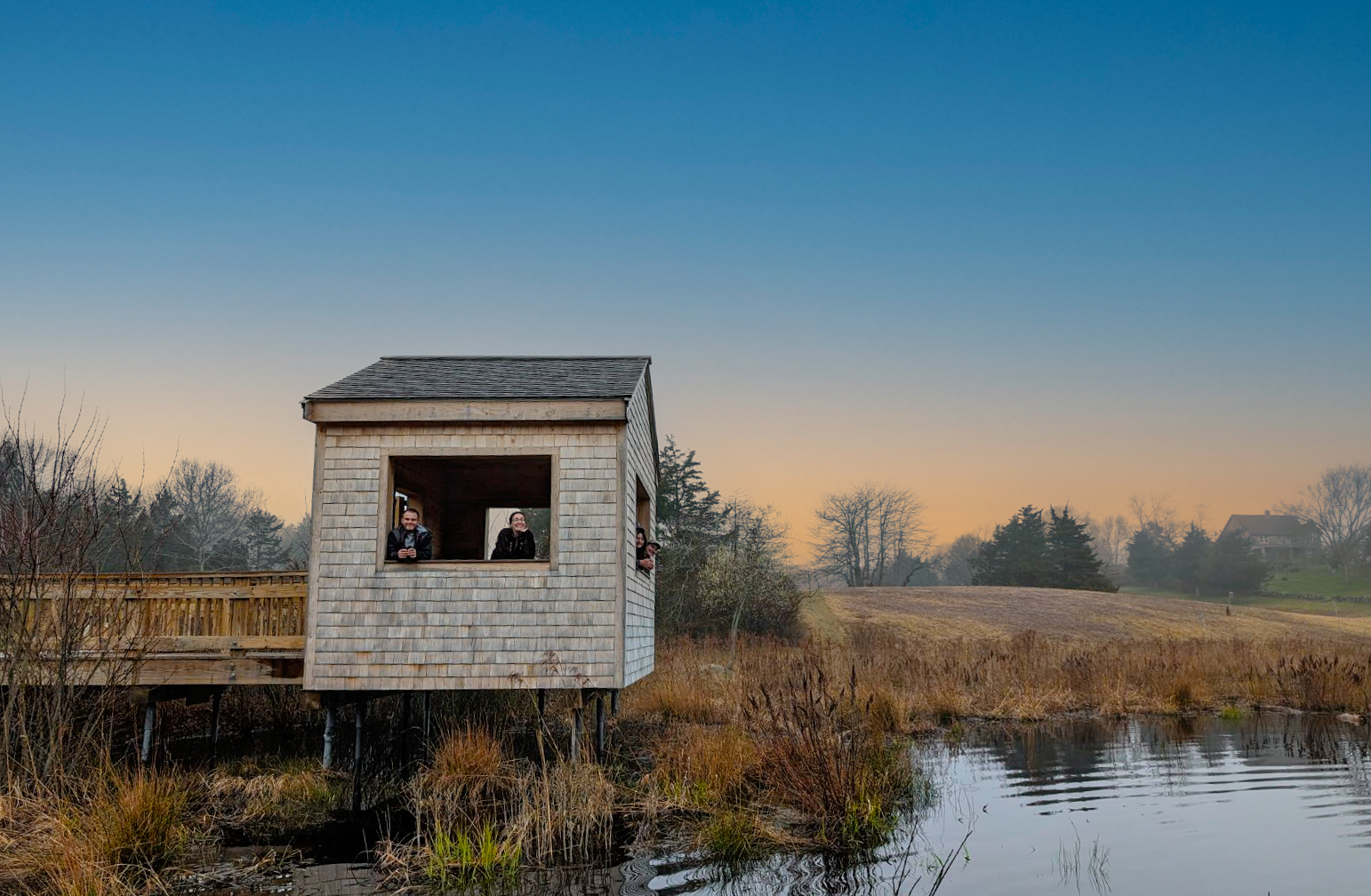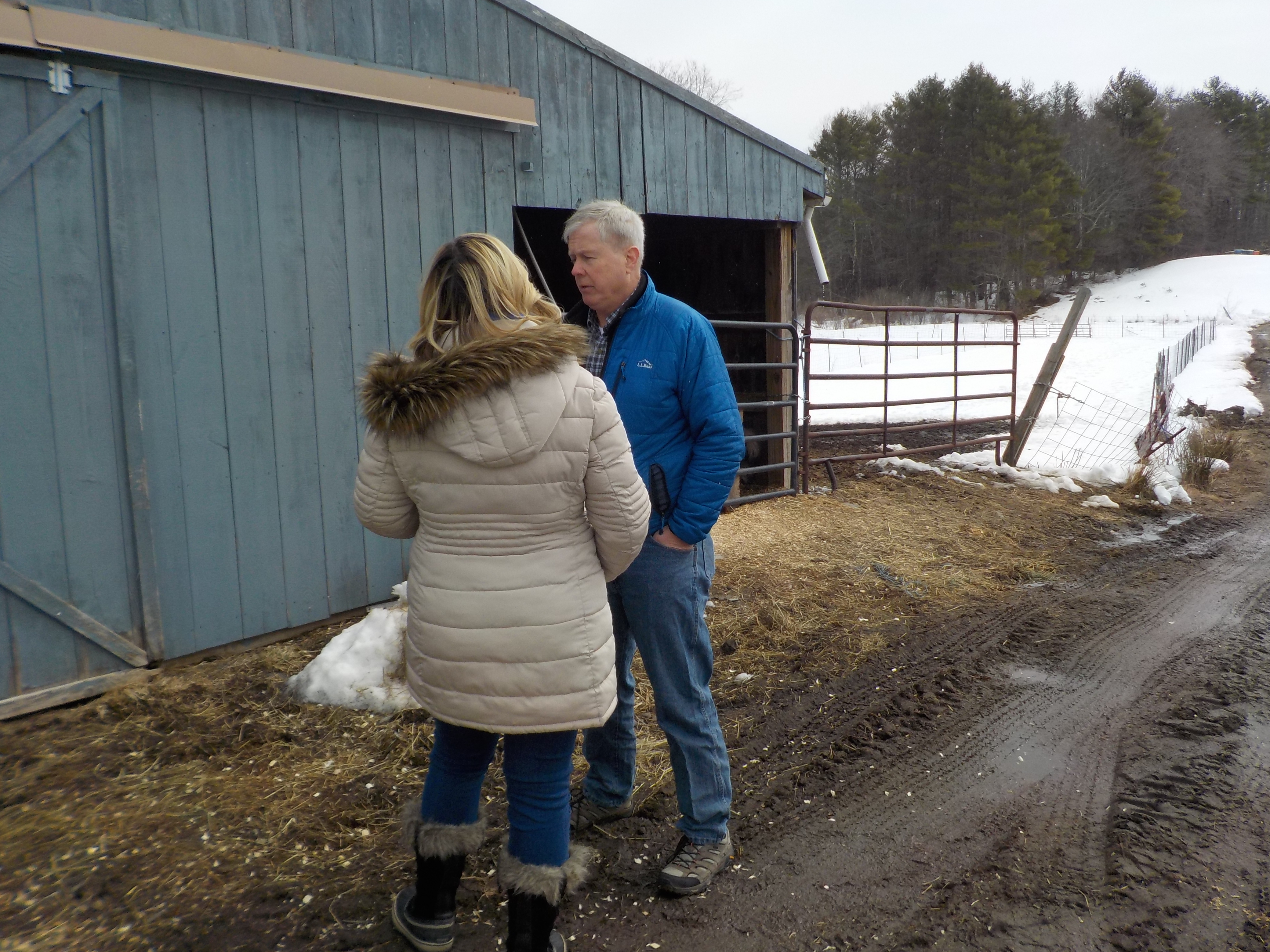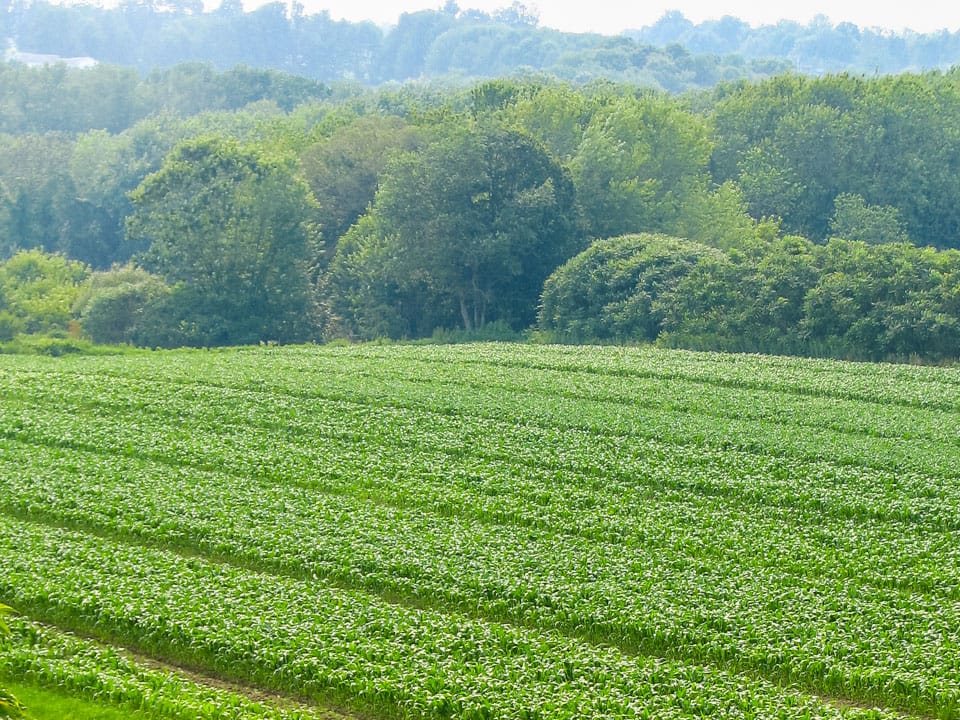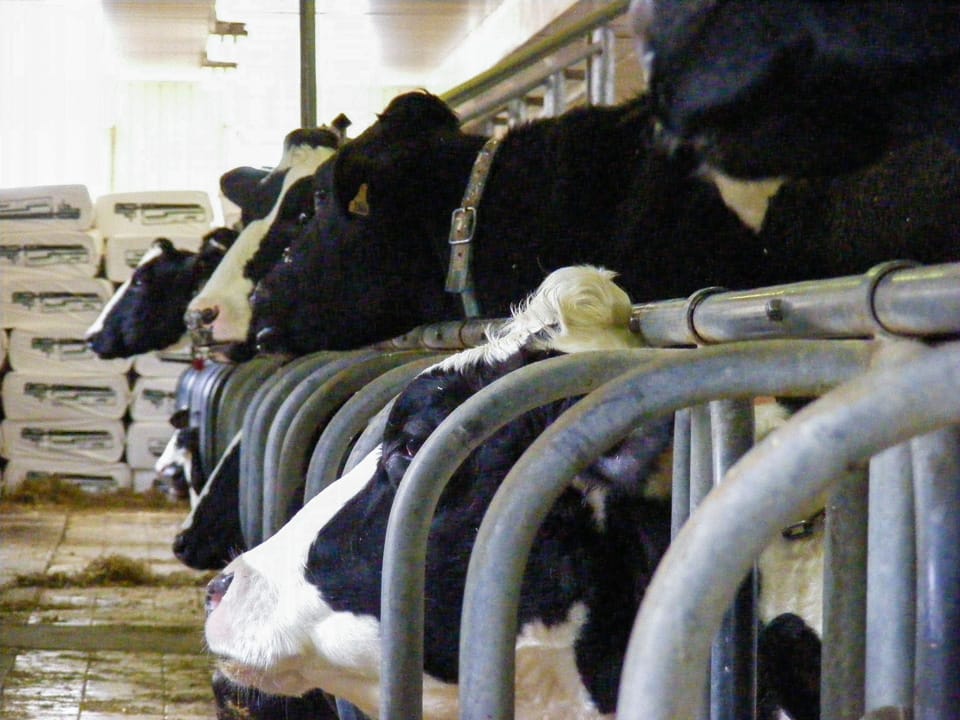But what effect is our changing climate having on maple syrup production? Andy Whitman, Manomet’s Director of Sustainable Economies Program, visited Coopers Maple Farm in Windham, ME, just before Maine Maple Sunday (March 25) to share his experiences from his career studying forest ecology and the science of climate change. Watch a video about the visit here.
Scientists have documented how our winters have warmed and how this warming has led to shorter maple syrup tapping seasons. The tapping season in Maine now starts about 8 days earlier and ends 11 days earlier than 50 years ago, giving producers a season that is 10% shorter. And the start of the season has become more unpredictable which means producers are more likely to miss the best syrup of the season or have their season cut short. Producers in Maine and other states report that syrup quality has declined. To compensate for these weather changes, some producers, like Mark Cooper, owner of Coopers Maple Farm, are having to spend more money on technology to stay in business.

Cooper has been producing maple syrup for 31 years and has noticed that over the last ten years the volume of sap produced has dropped. The length of the maple syrup season has started to vary dramatically and has been inconsistent leading to lower sap quality and yields. Additionally, “We have noticed that the tree health in the woods is certainly struggling…there are issues that are much more prevalent now with tree health that we didn’t see when we first started,” said Cooper.
“It’s harder to figure out when you start tapping now,” said Whitman. “With fewer trees, a shorter tapping season and trees producing less syrup, it does mean a real change in Maine. All of these challenges that producers like Mark face make it harder to stay in business and will likely drive out smaller producers.”
What will maple producers see in their future? The amount of habitat for sugar maple trees may decline by as much as 40%, and the tapping season may become half as long by the end of this century. The sugar content and the quality of maple syrup will also continue to decline.
But what makes maple syrup, best known as a sweet topping for pancakes and waffles, so important? According to the Natural Resources Council of Maine (NRCM) who organized the event, Maine’s maple syrup industry contributes nearly $30 million directly to the economy each year, and ranks third in the nation for maple production. Last year Maine produced more than 700,000 gallons of maple syrup, but recent studies show the future of Maine’s syrup industry is threatened by increased climate change. Manomet’s research contributed to a recent report from the United States Department of Agriculture (USDA) Forest Service showing the vulnerability of forest ecosystems to climate change across New England. In six New England states and northern New York, many economically and culturally important tree species, including the sugar maple, and forest communities will face increasing threats under warmer and more variable conditions.





 Back to all
Back to all

